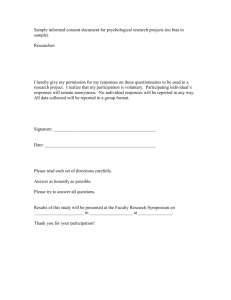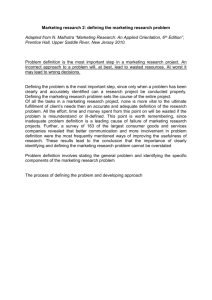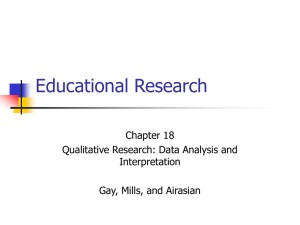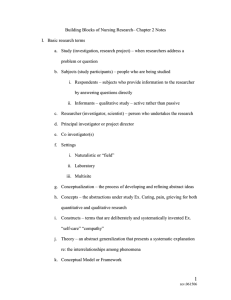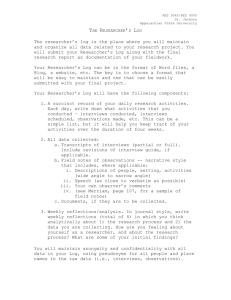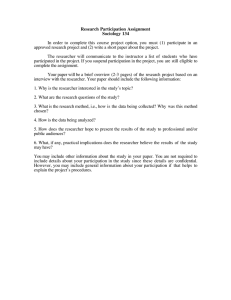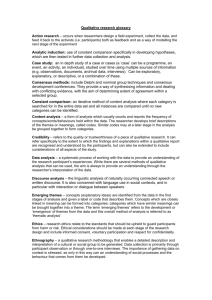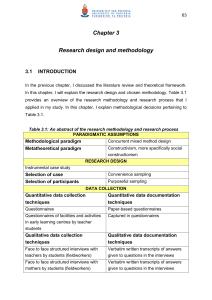Evaluating case studies as a research method Psychodynamic Approach
advertisement
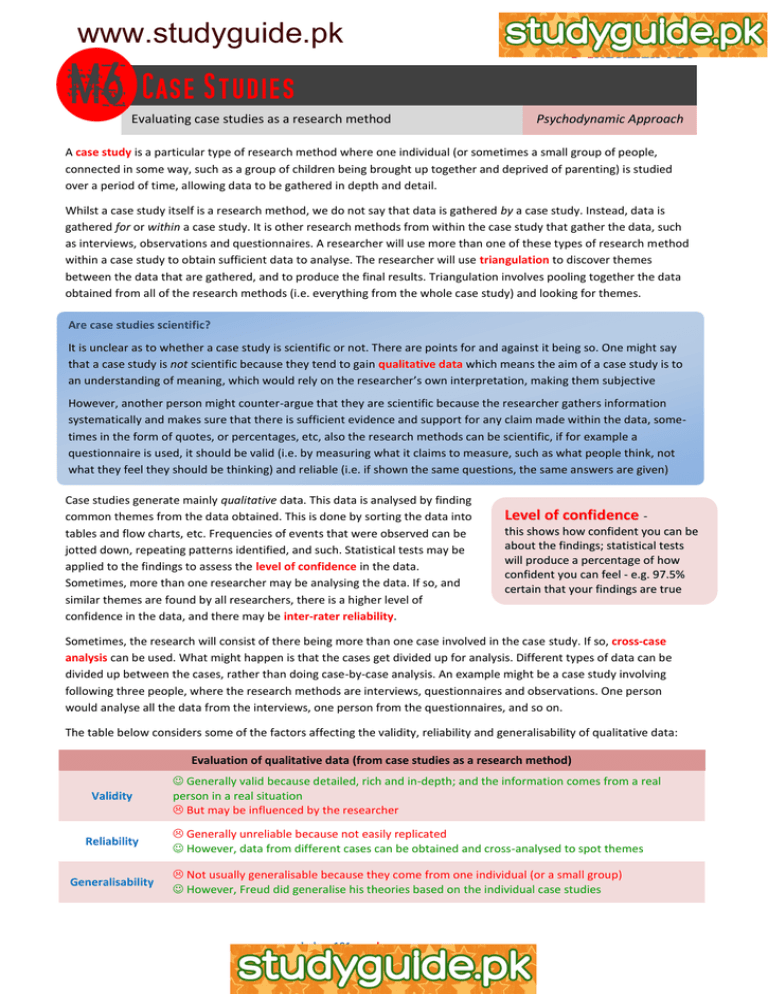
www.studyguide.pk Evaluating case studies as a research method Psychodynamic Approach A case study is a particular type of research method where one individual (or sometimes a small group of people, connected in some way, such as a group of children being brought up together and deprived of parenting) is studied over a period of time, allowing data to be gathered in depth and detail. Whilst a case study itself is a research method, we do not say that data is gathered by a case study. Instead, data is gathered for or within a case study. It is other research methods from within the case study that gather the data, such as interviews, observations and questionnaires. A researcher will use more than one of these types of research method within a case study to obtain sufficient data to analyse. The researcher will use triangulation to discover themes between the data that are gathered, and to produce the final results. Triangulation involves pooling together the data obtained from all of the research methods (i.e. everything from the whole case study) and looking for themes. Are case studies scientific? It is unclear as to whether a case study is scientific or not. There are points for and against it being so. One might say that a case study is not scientific because they tend to gain qualitative data which means the aim of a case study is to an understanding of meaning, which would rely on the researcher’s own interpretation, making them subjective However, another person might counter-argue that they are scientific because the researcher gathers information systematically and makes sure that there is sufficient evidence and support for any claim made within the data, sometimes in the form of quotes, or percentages, etc, also the research methods can be scientific, if for example a questionnaire is used, it should be valid (i.e. by measuring what it claims to measure, such as what people think, not what they feel they should be thinking) and reliable (i.e. if shown the same questions, the same answers are given) Case studies generate mainly qualitative data. This data is analysed by finding common themes from the data obtained. This is done by sorting the data into tables and flow charts, etc. Frequencies of events that were observed can be jotted down, repeating patterns identified, and such. Statistical tests may be applied to the findings to assess the level of confidence in the data. Sometimes, more than one researcher may be analysing the data. If so, and similar themes are found by all researchers, there is a higher level of confidence in the data, and there may be inter-rater reliability. Level of confidence this shows how confident you can be about the findings; statistical tests will produce a percentage of how confident you can feel - e.g. 97.5% certain that your findings are true Sometimes, the research will consist of there being more than one case involved in the case study. If so, cross-case analysis can be used. What might happen is that the cases get divided up for analysis. Different types of data can be divided up between the cases, rather than doing case-by-case analysis. An example might be a case study involving following three people, where the research methods are interviews, questionnaires and observations. One person would analyse all the data from the interviews, one person from the questionnaires, and so on. The table below considers some of the factors affecting the validity, reliability and generalisability of qualitative data: Evaluation of qualitative data (from case studies as a research method) Validity Reliability Generalisability Generally valid because detailed, rich and in-depth; and the information comes from a real person in a real situation But may be influenced by the researcher Generally unreliable because not easily replicated However, data from different cases can be obtained and cross-analysed to spot themes Not usually generalisable because they come from one individual (or a small group) However, Freud did generalise his theories based on the individual case studies www.aspsychology101.wordpress.com
